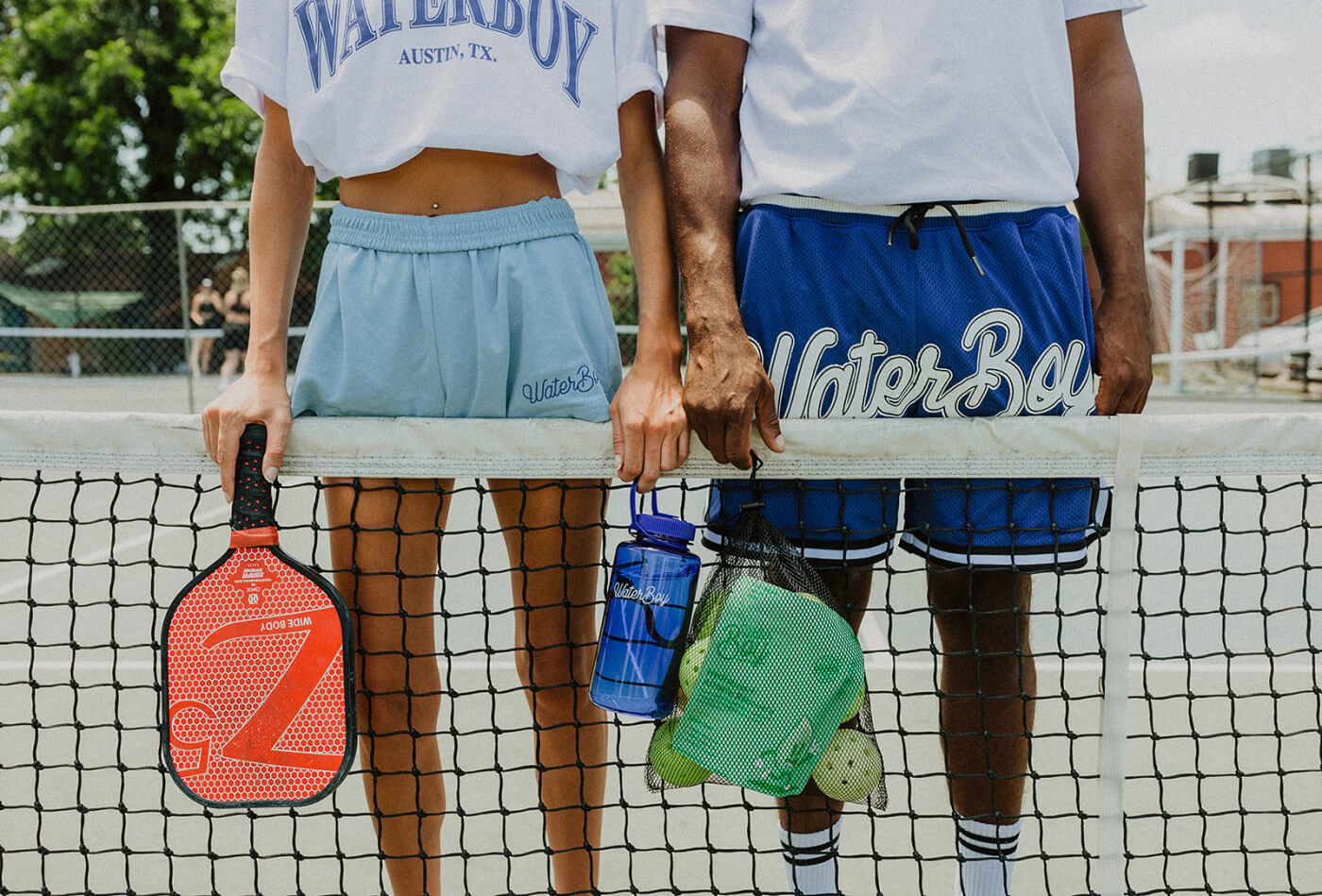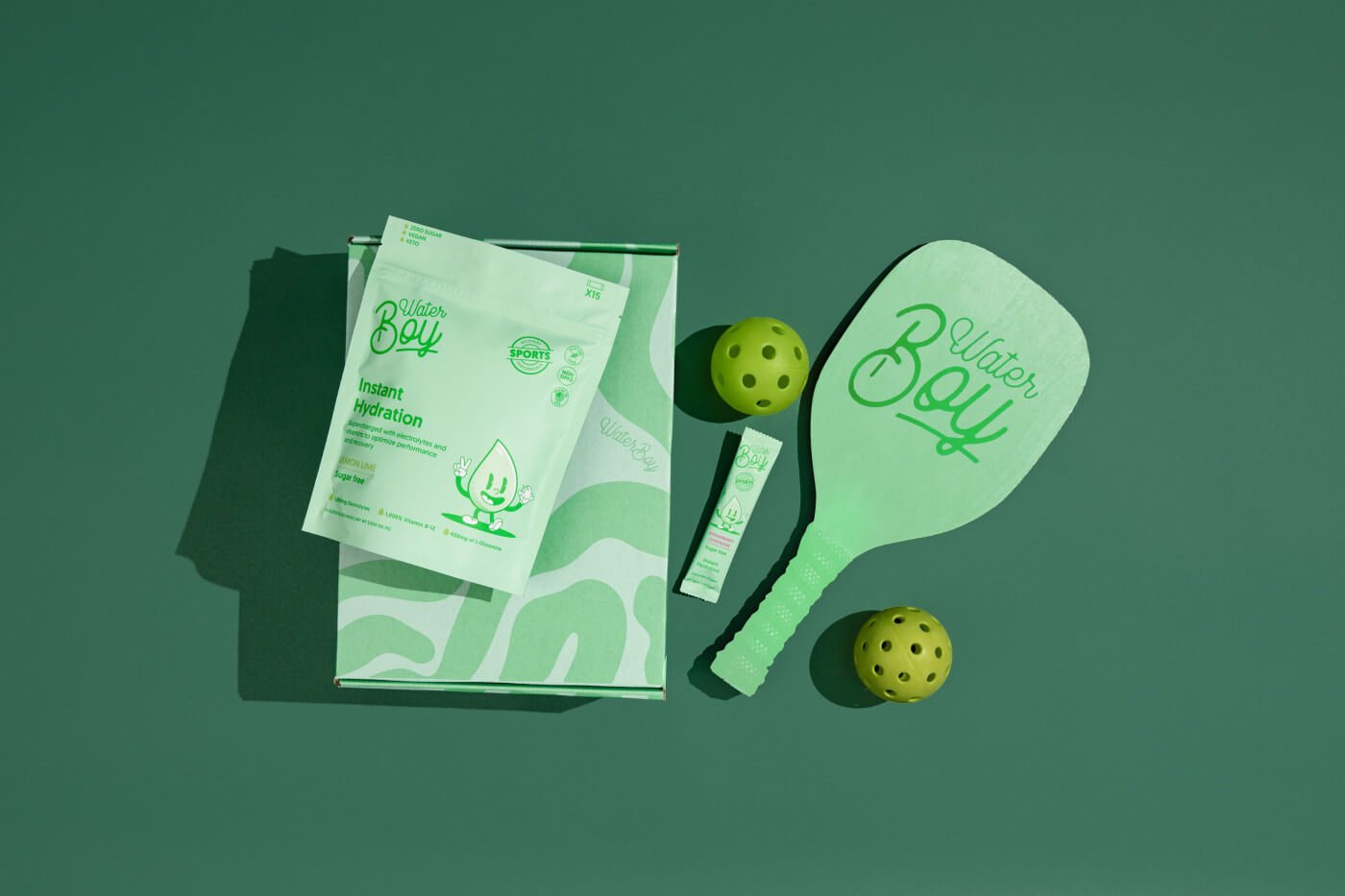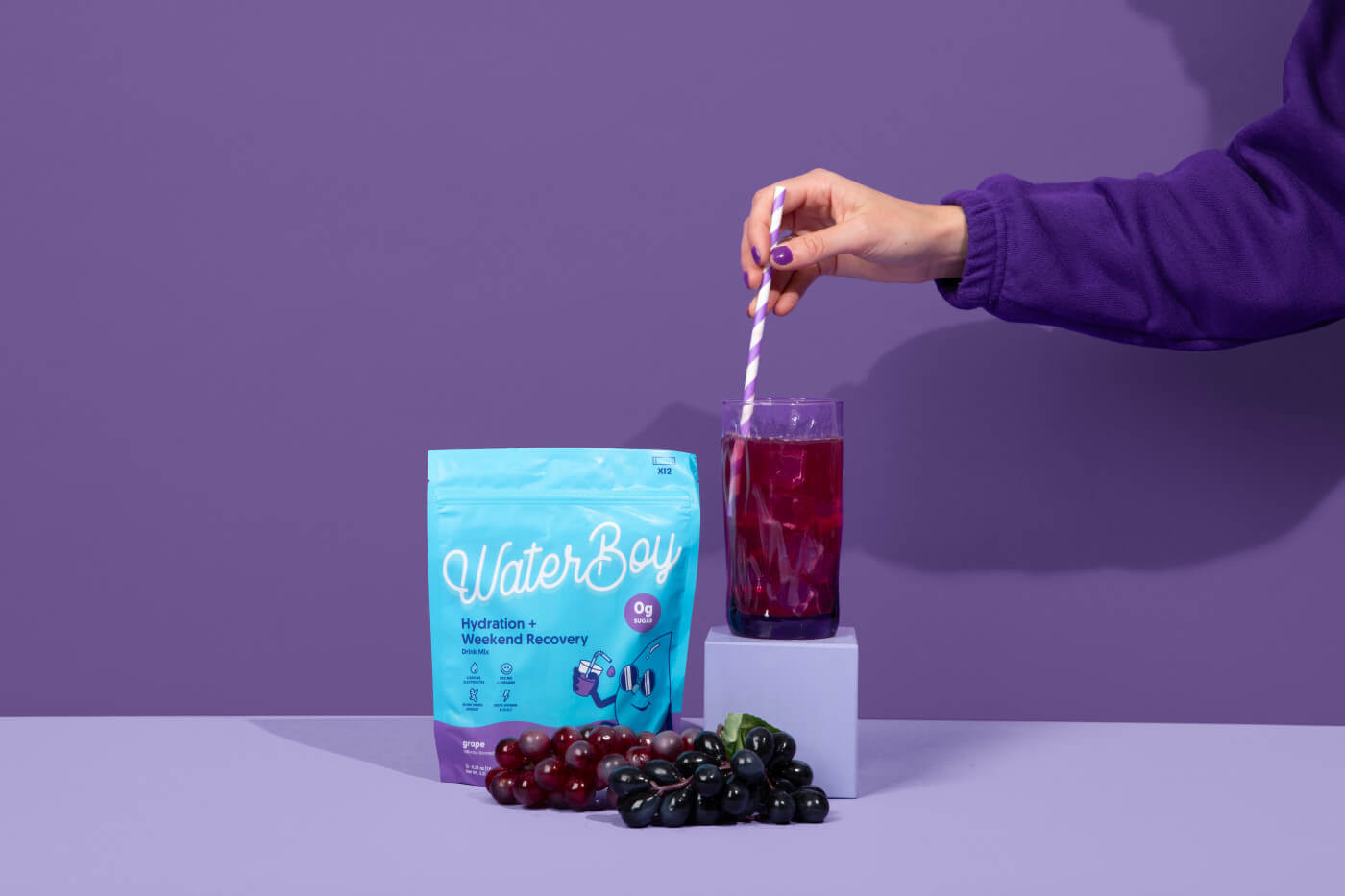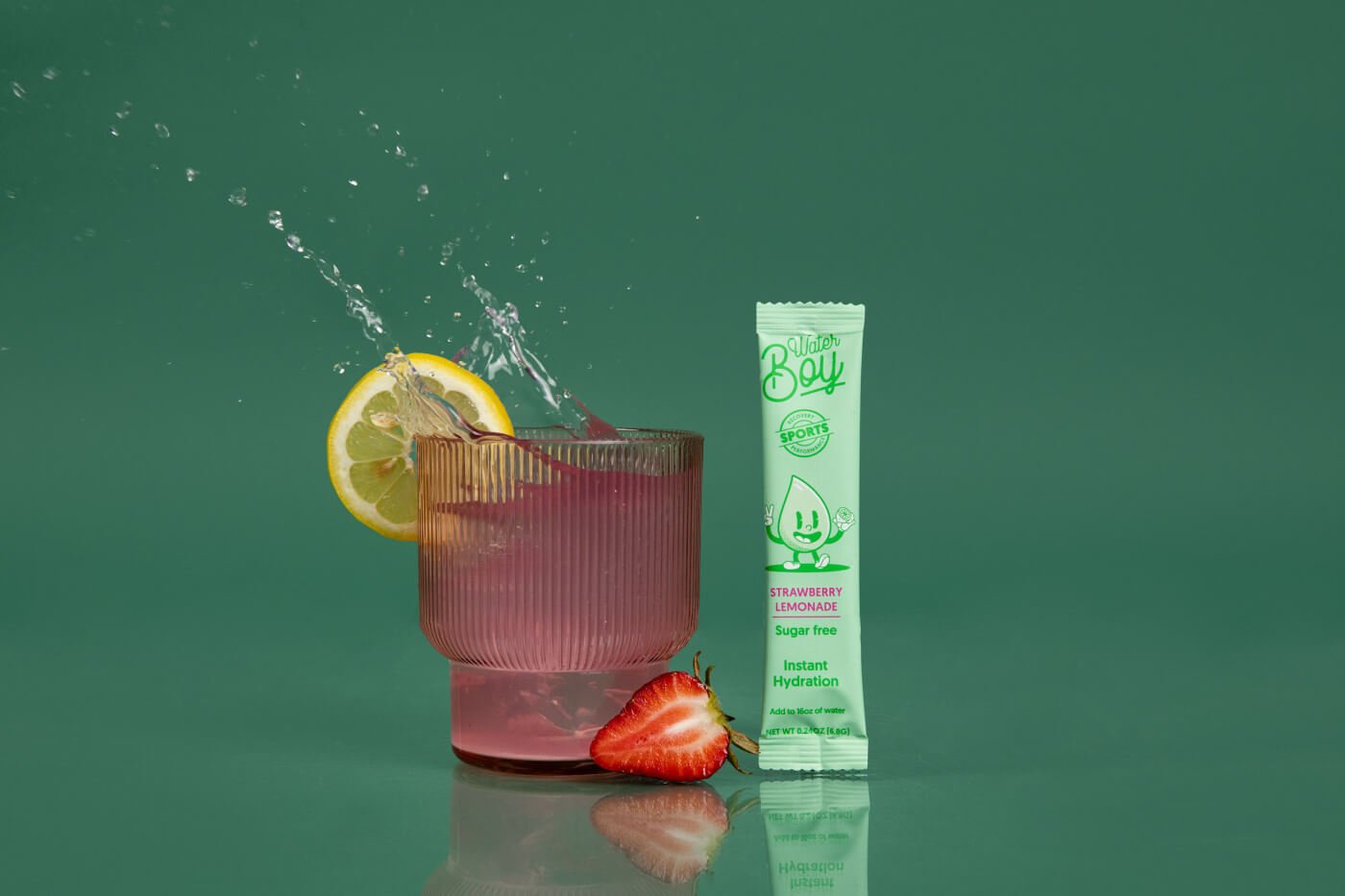Whether you’re a weekend warrior or an elite athlete, you’ve been lectured about the importance of loading up on protein after your workouts to help your body recover quickly. But there’s something else your body desperately needs after you push it to its limits: electrolytes.
If your clothes are drenched with sweat, your first instinct is probably to start chugging water to replace those fluids. However, that’s only part of the equation. Sweat is mostly made of water, but it’s also loaded with minerals like sodium, potassium, and magnesium. These electrolytes play key roles in hydration, muscle function, nerve function, and more.
So, how many electrolytes do you lose during a sweaty gym session or an afternoon of pickleball? The precise answer depends on several factors. But regardless of the amount, those electrolytes need to be replenished ASAP, otherwise you’ll feel sluggish and dehydrated no matter how much water you chug.
How Many Electrolytes Do You Lose When You Exercise?
The exact amount of electrolytes you lose during exercise can vary widely, depending on your hydration status, how much you sweat, the intensity of your exercise, and the environment (temperate and humidity). But on average, you can expect to lose between 1,900 and 3,370 mg of electrolytes per hour of moderately intense exercise.
Let’s do some quick math to see how we arrived at that number.
The average human churns out approximately two liters of sweat during a moderately intense exercise session—we’re talking about running, lifting weights, or playing basketball. According to the Collegiate and Professional Sports Dietitians Association, here’s the mineral concentration (AKA electrolyte concentration) of one liter of sweat:
- Sodium: 460-1,840 mg/L
- Potassium: 160-390 mg/L
- Chloride: 710-2,840 mg/L
- Magnesium: 0-36 mg/L
- Calcium: 0-120 mg/L
If we multiply those amounts by two liters, that means you lose between 1,900 and 3,370 mg of electrolytes per hour of moderately intense exercise.
Remember, these are just estimates. You probably won’t sweat two liters during a casual walk on the treadmill. But it’s not uncommon for athletes to sweat more than two liters per hour—especially outdoors in hot, humid weather.
Who Do You Need to Replenish Electrolytes After Exercising?
Drinking water after exercise is better than drinking nothing. But H2O alone doesn’t always cut it when you need to rehydrate, especially after intense or prolonged exercise. Here are three reasons why.
1. Prevent Dehydration
Electrolytes play a major role in helping the cells in your body absorb and retain fluids. If you don’t replenish those electrolytes after sweating up a storm, your body can have a hard time rehydrating quickly and thoroughly.
2. Prevent Muscle Cramps
Electrolytes—particularly potassium, magnesium, and calcium—are critical for muscle function, including contraction and relaxation. If you’re running low on electrolytes, you can increase the risk of muscle cramps or spasms, especially during or after exercise.
Ever notice how when a football player cramps up on TV, it’s almost always in a hot, humid stadium? Blame the loss of electrolytes.
3. Prevent Fatigue
Electrolyes don’t jolt you awake like a shot of espresso. They are, however, involved in energy metabolism and nerve transmission—both of which are essential for keeping you alert. When your electrolyte levels are low, it’s not uncommon for your energy levels to be low too.
4. Promote Muscle Recovery
Protein shakes aren’t the only thing that boosts muscle recovery. Electrolytes are involved in a process called “protein synthesis,” which is essential for repairing and rebuilding damaged muscle tissue. Specifically, potassium, magnesium, and calcium activate enzymes that produce protein for your body.
How to Replenish Your Electrolyte Levels After Exercise
The easiest and fastest way to replenish your electrolyte levels after exercising is with a hydration supplement—specifically one with enough electrolytes to replace everything you lost during your sweat sesh.
It’s possible to replenish some electrolytes through your diet. But it’s also inefficient. For example, a banana delivers a solid 422 mg of potassium, but only 1 mg of sodium—far short of what you lose in a liter of sweat. Not to mention, whole foods take longer for your body to digest and absorb compared to liquid.
You put in enough work in the gym and on the court. You deserve to be lazy when it comes to rehydrating. That’s why we made WaterBoy: our instant hydration formula supercharged with electrolytes and vitamins to support athletic recovery.
For starters, WaterBoy clocks in with a whopping 1,899 mg of electrolytes—that’s more than 5x the amount of a bottle of Gatorade. We didn’t stop with salt, though. Our Athletic Recovery formula packs 400 mg of L-Glutamine to stop muscle soreness and 1,000% of your daily value of vitamin B12 to boost your energy levels.
If you’re amped about what we put in WaterBoy, just wait till you hear what we left out. No sugar, no caffeine, no artificial sweeteners, no fillers. Unlike that dude who hogs the bench press at your gym, we’re 100% natty.
Whether you’re feelin’ Lemon Lime or Strawberry Lemonade, one stick of WaterBoy is all you need to dunk on dehydration.
Workout Hydration
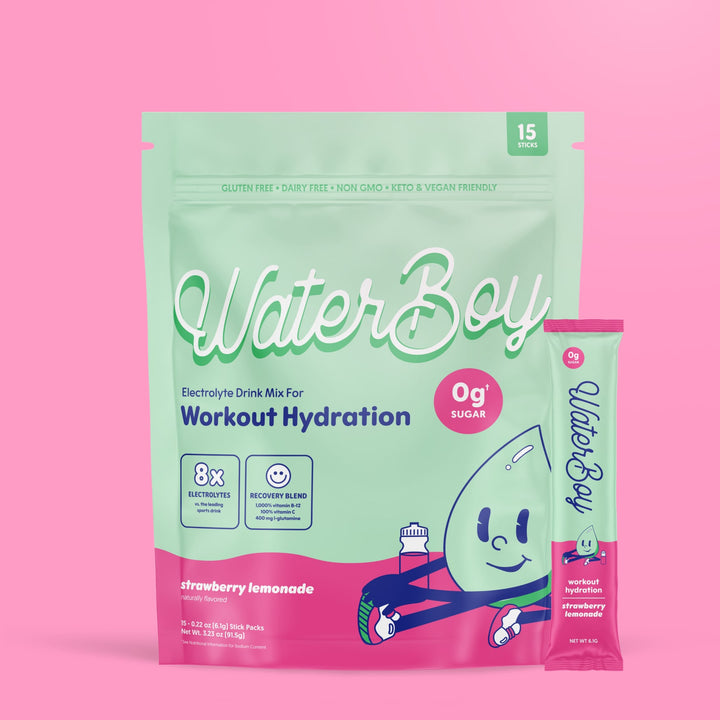
$24.99
WorkoutRather than make a one-size-fits-all-dehydration product with varying amounts of sugar and salt, we make our formulas specifically when you need them. Our workout hydration formula is not only packed in electrolytes, but we've added a blend of ingredients to… read more

